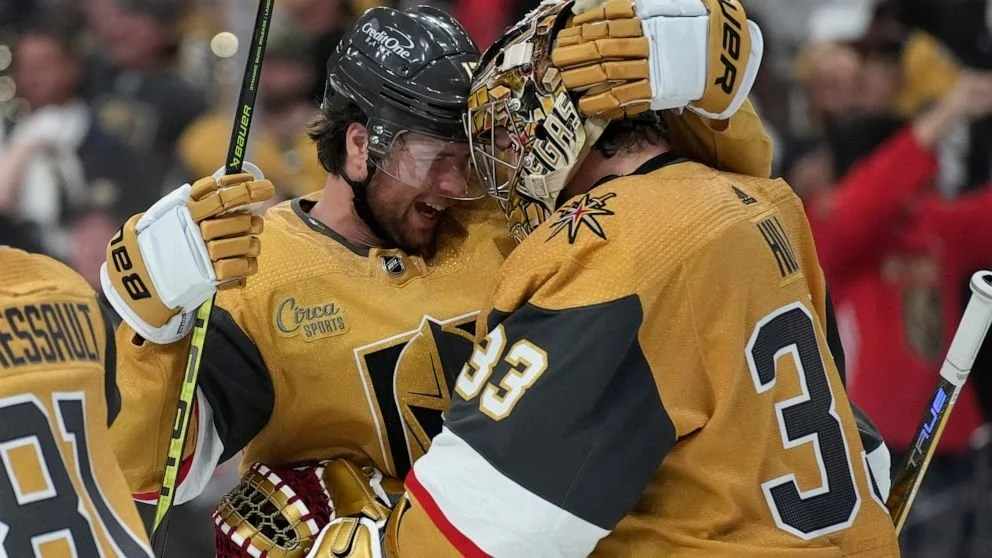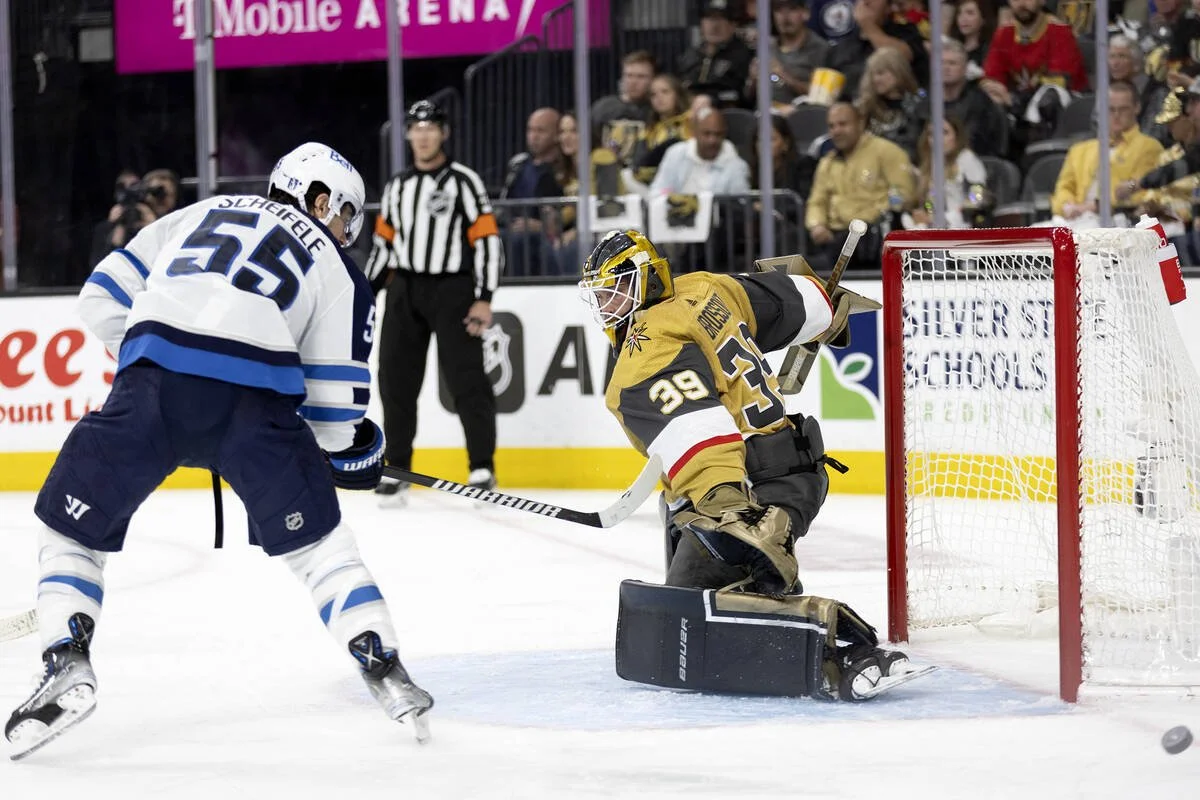What You Probably Don't Know About Playoff Success: Oilers/ Leafs Edition
It’s another spring, another failure to communicate with Lord Stanley for Canadian NHL teams. With Friday’s demise of the high-powered Toronto Maple Leafs in five games to underdog Florida and Conor McDavid’s Edmonton Oilers falling in six games to Las Vegas on Saturday it is now 30 years and counting for another Canadian team getting its name on the Stanley Cup.
Firings, hirings, trades and retirements will follow the Lost Weekend in May. There will be much consternation and plenty of speculation as to why the teams north of the Whiskey Line have lost the plot. But we are certain about a few things governing this slump.
It is not surprising. There are now 32 teams in the NHL and, as Boston’s legendary GM Harry Sinden told me, “Only one Cup. That leaves a lot of pissed-off people.” Indeed. As we are reminded by anyone who does reach the hockey summit, the odds against winning the Cup are steep at the best of times. When you factor in the sample size of Canadian winners it gets even more difficult.
These are not Canadian teams, of course. They are teams representing Canadian cities. They can contain anywhere from 40-65 percent Canadian players, but remember the Maple Leafs’ best player Auston Matthews is American, Edmonton’s No. 1A Leon Draisatl is German, and Vancouver has no best player. Which is to say that for those who view this drought as the pressure of playing in Canada… yes. And no. The fans in Toronto (56 years) and Edmonton (33 years) have been waiting for eternity. But players were playing for other things in other places before they arrived in a Canadian city. They do not share your pain. Their pain is different.
Having said that, learning the trick to winning is huge. Despite the long odds of outlasting the other 31 clubs, we have seen various teams notch multiple Cups wins over the past 33 years. Pittsburgh won six. Detroit won four. Chicago, New Jersey, Tampa Bay and Colorado have each won three. Several others have won two. So it’s hard. But there seems to be a huge bias toward teams that have experience closing the deal.
Why? Playing the same opponent as often as seven times in two weeks is not natural to NHL teams coming out of a regular season where you might— might— face a team back-to-back very infrequently. In the regular season you can be a rattle snake and strike quickly. Video is your best scout. But in the playoffs you need to be a constrictor and squeeze your prey till he gradually expires. Recency bias is two nights ago. And depth is everything. And so two Canadian teams, top-heavy with forwards on its salary cap, were exposed by where they scrimped— in goal, defence— and went bye-bye in Rd. 2. Having said that, Calgary built a team for the playoffs and then didn’t make the playoffs.
As former NHL coach Dallas Eakins so eloquently pointed out to the HNIC panel— that had all season to make the same point themselves— eighty percent of the play in an NHL playoff game is played within three feet of the boards. So while goals are scored from in front of the net they are produced along the sides of the rink. This requires players who’ve made their living in the regular season floating along in the centre of the rink to put on work books and do the dirty work on the sides. Famously, Matthew Tkachuk declined to do this much for Calgary in 2022. Now, in 2023, he’s a beast on the boards and the surprising Panthers are in the Conference final.
Understanding and coping with the officiating in the playoffs is key to managing expectations. Both Toronto and Edmonton had major gripes— right or wrong— from the referees as their series progressed and seemed to get sidetracked by the slash on Draisaitl and the disallowed goal in Game 7 for Toronto. We dealt with this here. You can’t beat the zebras, so don’t even try.
Did we say goaltending was important? Yes. While the coaches have the mission statement, the goalie has the map. As @Edowrymple points out, Carey Price took a Canadiens team far worse than either the Leafs or Oilers and got them to the finals two years ago while on a bad knee and battling substance issues. This year’s versions of Price (minus the substances) are Vegas’ Adin Hill and Florida’s Sergei Bobrovsky. And here’s where the “but" comes in. At the start of the playoffs Hill was an unknown commodity and Bobrovsky was considered washed-up. Which is to say, You never know. But stashing two goalies on your roster who are just crazy enough to persevere in the playoff mayhem is a must. Neither Edmonton nor Toronto did that.
Finally, the remaining teams have no Mount Rushmore candidates on their rosters. Yes, Tkachuk is a nominee for the Hart Trophy. Joe Pavelski is going to the HHOF. But the surviving teams are a dog’s breakfast when you discuss how to build a Cup winner. Two— Vegas and now-eliminated Seattle— were not even in the league before 2017. Here’s what they did. The survivors made some moves around the trade deadline, but their core is built via shrewd trades, excellent draft and development and thrifty salary-cap management. In short, when we look at the winner of 2023 Cup there will be no A-Ha moment about how to create a winner. What they will agree upon is health and …
Timing. It’s random, and it’s everything. When the sun shines on your dog’s ass, sell the farm. These chances don’t come every day. The bad news about timing is that Toronto’s cap window is about to slam on their fingers. Edmonton needs to move a big salary or three or repeat this frustration. The good news about timing is that they— or the other Canadian teams— can do the job. Just get into the postseason.
Sign up today for Not The Public Broadcaster newsletters. Hot takes/ cool slants on sports and current affairs. Have the latest columns delivered to your mail box. Tell your friends to join, too. Always provocative, always independent. https://share.hsforms.com/16edbhhC3TTKg6jAaRyP7rActsj5
Bruce Dowbiggin @dowbboy is the editor of Not The Public Broadcaster A two-time winner of the Gemini Award as Canada's top television sports broadcaster, he’s a regular contributor to Sirius XM Canada Talks Ch. 167. Inexact Science: The Six Most Compelling Draft Years In NHL History, his new book with his son Evan, was voted the seventh-best professional hockey book of all time by bookauthority.org . His 2004 book Money Players was voted sixth best on the same list, and is available via http://brucedowbigginbooks.ca/book-personalaccount.aspx



